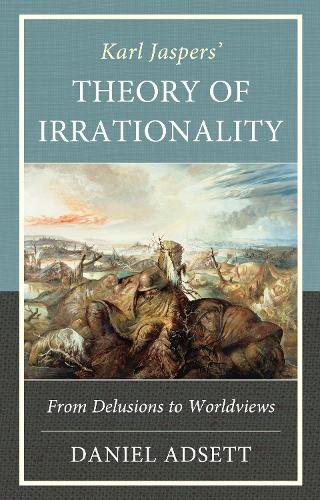
Karl Jaspers' Theory of Irrationality: From Delusions to Worldviews
(Hardback)
Publishing Details
Karl Jaspers' Theory of Irrationality: From Delusions to Worldviews
By (Author) Daniel Adsett
Bloomsbury Publishing PLC
Lexington Books/Fortress Academic
15th February 2025
United States
Classifications
Professional and Scholarly
Non Fiction
Philosophy
128.33
Physical Properties
Hardback
230
Width 152mm, Height 229mm
508g
Description
Defending the view that Karl Jaspers concept of irrationality (Widervernunft) is better able to account for pathological patterns of individual and collective thinking, Karl Jaspers Theory of Irrationality: From Delusions to Worldviews argues that irrationality is incorrigibility, a blockage of reason as the will to communication. Highlighting the importance of freedom and creativity at the heart of reason (Vernunft), Daniel Adsett analyzes examples of delusional thought through a Jaspersian lens. He shows that irrationality arises when we hold to certain attitudes with an incorrigible conviction and refuse to genuinely consider the possibility that we might need to revise or change our beliefs. In presenting these arguments, Adsett offers a novel contribution to contemporary debates about the character of reason while rehabilitating an often neglected aspect of Jaspers thought.
Reviews
Karl Jaspers Theory of Irrationality: From Delusions to Worldviews is a substantive analysis and critique of Karl Jaspers theory of irrationality. The nuanced exposition and interpretation of Jaspersian irrationality engages contemporary philosophers who espouse foundationalist, coherentist and normative understandings of irrationality. Daniel Adsett engages contemporary philosophers of reason with specific reference to Jaspers distinction between delusions proper and delusion-like ideas (General Psychopathology) and convincingly argues the case for the irrationality of delusions as a form of incorrigibility. The work teases out highly relevant implications of Jaspersian reason and irrationality for putative comprehensive reductionist worldviews that profess absolute knowledge of the individual (Psychoanalysis), world (Marxism) and God (dogmatic theology) and suggests the current-day relevance of Jaspers account of irrationality for contemporary political discourses and new developments of artificial intelligence. While a sympathetic reading of Jaspers theory of irrationality, Karl Jaspers Theory of Irrationalitycloses with a compelling critique of the idea of the Encompassing and method of Periechontology that appeals to Jaspers concept of Foundering as a way to understand some of the tensive contradictions in Jaspersian philosophizing. Wide-ranging in scope, meticulous in reference, and well-written, Adsetts book deserves a wide readership and reception. -- Gregory J. Walters, Saint Paul University/Universit Saint-Paul
Author Bio
Daniel Adsett is assistant professor teaching business ethics and philosophy at the American University in Bulgaria.
